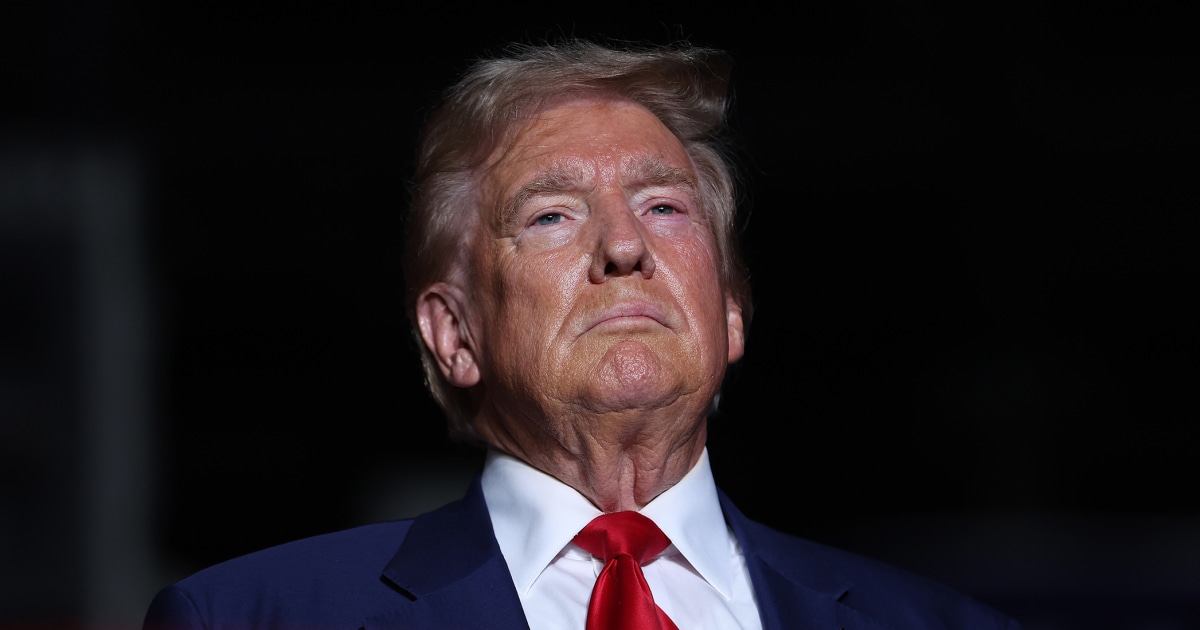
At the end of his first term in office, then-President Donald Trump sought to install Kash Patel, a hard-line MAGA loyalist, as deputy CIA director. But the head of the agency at the time, Gina Haspel, a career intelligence officer, threatened to resign in protest, and the appointment was scuttled. Now, four years later, Patel is considered a possible pick for CIA director or another high-level national security post in a second Trump administration.
And there likely will be no one to stand in his way this time. Patel is one of several fiercely loyal political allies who President-elect Trump is considering to oversee the country’s national security. In his first term in office, Trump frequently clashed with his deputies and top officials, who he came to view as insufficiently loyal to his agenda.
This time, the president-elect is keen to fill his administration with people who will carry out his decisions without question, according to sources familiar with the transition process. Marc Short, who served as chief of staff to former Vice President Mike Pence, said that the people Trump picked in his first term to run the intelligence agencies, including Haspel, and former lawmakers Mike Pompeo and Dan Coats, were highly capable figures who performed well. “There was undeniable competence there,” Short said.
“And I think it would be a mistake to go in a different direction from that.” Short added: “It certainly seems that some of the people that are most, perhaps, noisy in his inner circle, are hungry for a different path.” Lawmakers, former intelligence officers and Western officials worry that Trump and a group of loyalists could reshape the makeup and mission of the nation’s intelligence apparatus.
Officers could be pressured to skew their findings to suit the White House’s political agenda, allies might scale back information sharing due to Trump’s cavalier approach to secrecy and, in a worst-case scenario, the spy agencies could be converted into tools of retribution against domestic political opponents, the former officers and others say. “I think a lot of it depends on who they put in as director, deputy and chief operating officer”at the CIA, said one former senior intelligence officer. Those appointments will set the tone and determine if the spy agency is able to maintain professional, apolitical standards or whether it becomes the target of a politically-motivated overhaul, the former officer said.
Patel, an outspoken critic of the intelligence agencies and the Justice Department who worked at the White House National Security Council during the Trump administration, declined to comment. He has endorsed Trump’s baseless claim that the 2020 election was “stolen.” Trump’s aides have previously dismissed warnings about how the president-elect might politicize the intelligence community, saying it was President Joe Biden and his administration that had injected partisan politics into the intelligence agencies, not Trump.
Brian Hughes, a spokesman for the transition, told NBC News in an email that Trump had won a decisive victory on “a common sense mandate for change” and that “people can expect an administration that reflects a commitment to seeing that agenda is put in place starting on Day 1." Distrust of a “deep state” Dating back to the outset of his first term in office in 2017, Trump has had a troubled relationship with the intelligence community. He and his supporters have portrayed officials in those agencies — along with the Justice Department — as part of a “deep state” plotting against him.
At a 2018 news conference with Vladimir Putin, Trump famously sided with the Russian president over his own intelligence agencies when asked if he believed Moscow meddled in the 2016 election. “I have great confidence in my intelligence people,” Trump said at the event in Helsinki. “But I will tell you that President Putin was extremely strong and powerful in his denial today.
” Another critic of the intelligence community, former Rep. Devin Nunes of California, could also be in the mix for the CIA job under a new Trump administration, according to congressional aides and Republican activists. 'Other possible picks for the intelligence world include: John Ratcliffe, the former Texas congressman who served as director of national intelligence in Trump’s previous term; Robert O’Brien, former national security adviser to Trump; and Sen.
Marco Rubio. Special counsel Robert Mueller's probe into whether Trump’s 2016 presidential campaign worked with Russia to defeat Democrat Hillary Clinton deeply angered Trump and his supporters. The investigation, which wrapped up in 2019, found no evidence of collusion but reached no conclusion as to whether Trump had obstructed justice.
In response to the probe, Former Attorney General Bill Barr appointed a special counsel to investigate the FBI and the intelligence community probe of Trump. After a four year investigation, Special Counsel John Durham issued a scathing 300-page report that said the FBI had acted negligently when it opened the investigation based on vague and insufficient information. Yet Durham found that no senior FBI or CIA officials had committed crimes.
The two criminal prosecutions he brought, both regarding lying, ended in juries acquitting the defendants. Trump and his allies, though, continue to paint the Justice Department and the intelligence community as a hostile bureaucracy with civil servants out to get the president. After Trump's election win on Tuesday, Steve Bannon.
one of Trump’s longtime allies, called for “justice” and punishment against officials at the FBI, the DOJ and the CIA who he alleged had persecuted him and Trump and damaged the country. “Now you’re going to pay the price for trying to destroy this country,” Bannon said. Past domestic spying Former intelligence and security officials said their former colleagues are bracing themselves for a difficult period in which they could face dilemmas about following orders they consider unethical or damaging to national security.
“I very much expect members of the intelligence community to be challenged to decide whether to stand up to Trump or not, just like they were repeatedly in his first term,” one congressional aide said. Former intelligence officials disagree on whether Trump would seek to use the spy agencies against domestic political opponents, and if he did, how the intelligence workforce and courts would respond. After the Watergate scandal, laws were enacted that expressly forbid using the spy agencies against Americans.
The measures were in response to the Nixon administration using the CIA to gather intelligence on domestic protesters opposed to the Vietnam War. Nixon also tried unsuccessfully to enlist the help of the CIA to quash an FBI investigation into the burglary of the Democratic National Committee headquarters at the Watergate Hotel, which sparked the scandal. One former senior intelligence official said for all its shortcomings, the intelligence community would not be easily converted into a domestic spying service, and that many of the career officers would refuse to follow unlawful orders.
“They would be pretty resistant to turning it on the American people,” the former official said. Thousands of political appointees Trump’s allies have called for revisiting an effort at the end of his last term when senior officials planned to remove thousands of civil servants across the federal government and replace them with political appointees. It’s unclear if Trump and those he nominates to run the intelligence community will seek to replace large numbers of civil servants at the spy agencies.
Presidents face few legal constraints when it comes to their authority over the intelligence agencies, legal experts and former senior officials said. “The law allows for a hell of a lot of discretion” and Trump would have “a pretty free hand,” according to Glenn Gerstell, who worked as general counsel for the National Security Agency from 2015 to 2020. Supporters of Trump say dire warnings about the future of the intelligence agencies under a new Trump administration are hysterical and overblown, and that his record at the White House shows that he strengthened the spy agencies.
Trump’s supporters said it would be reasonable for the president-elect to assert control over the intelligence community through political appointees, to ensure the agencies carry out the president’s policies without bureaucratic subterfuge. “No matter what side you’re on politically, you should want political control because we don’t want this country to become a security state,” a former official close to the Trump team said. The Heritage Foundation’s proposed outline for action, titled “Project 2025,” calls for the president-elect to promptly choose a deputy director of the CIA, who would not need Senate confirmation and could “immediately begin to implement the President’s agenda.
” “Additional appointees should be placed within the agency as needed to assist the Director in supervising its functioning,” the report states. The document also calls for breaking “the cabal of bureaucrats in D.C.
” by moving some directorates in the CIA outside of northern Virginia, where the headquarters is located. Robert Litt, who served as general counsel for the Office of the Director of National Intelligence from 2009 to 2017, said inserting political appointees into the management of the spy agencies in unprecedented numbers could distort the way intelligence is analyzed and lead to illegal or ill-advised decisions. “I think it would be a very, very bad thing for the intelligence community and for the nation if the intelligence community was dominated by a group of political loyalists,” he said in an interview with NBC News earlier this year.
“One is the risk that intelligence analysis will not be called down the middle,” Litt said. “And the other is the risk that the intelligence agencies will be directed to do things that are either unlawful or inappropriate.”.














